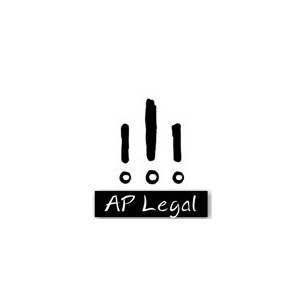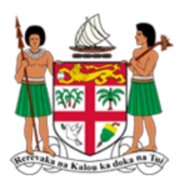Best Renewable & Alternative Energy Lawyers in Suva
Share your needs with us, get contacted by law firms.
Free. Takes 2 min.
List of the best lawyers in Suva, Fiji
About Renewable & Alternative Energy Law in Suva, Fiji
Renewable and alternative energy law in Suva, Fiji, deals with the legal frameworks and policies that govern the generation, distribution, and use of energy from renewable sources. Fiji, composed of over 300 islands, is committed to transitioning towards sustainable energy solutions to reduce reliance on imported fossil fuels, decrease greenhouse gas emissions, and promote energy security. The capital city Suva, as the country’s legal and commercial hub, plays a pivotal role in implementing and overseeing these initiatives. Law and regulation in this field are designed to manage resource allocation, ensure environmental protection, and stimulate investment in technologies such as solar, hydro, wind, and bioenergy.
Why You May Need a Lawyer
Legal guidance is essential for individuals, businesses, and developers navigating the complex regulatory environment of renewable and alternative energy in Suva. Common situations that may require legal support include:
- Obtaining licenses and permits for renewable energy projects
- Understanding tax incentives and government subsidies
- Negotiating land use and property agreements for energy installations
- Drafting and reviewing contracts with suppliers and service providers
- Interpreting environmental impact assessments and compliance requirements
- Addressing disputes or challenges with regulatory authorities or local communities
- Protecting intellectual property for new energy technologies
- Dealing with grid connection and access issues
- Understanding power purchase agreements and government tenders
- Managing cross-border investment and financing for large-scale projects
Local Laws Overview
Several key legal provisions shape renewable and alternative energy projects in Suva:
- The Fijian Government’s National Energy Policy sets out strategic guidelines to promote renewable energy investments and support national electrification goals.
- The Environmental Management Act 2005 requires environmental impact assessments for significant energy projects to safeguard Fiji’s ecosystems.
- The Electricity Act regulates the generation, transmission, and distribution of electricity, including provisions for independent power producers and grid access.
- The Fiji National Energy Policy and Implementation Plan (2022-2030) prioritizes the use of solar, hydro, wind, and biomass energy, providing further support for project development.
- Customary land rights can influence site selection and development, making community consultation and landowner agreements critical components.
- Investment incentives and tax breaks may be available for approved renewable energy ventures.
- Special regulations govern off-grid and mini-grid projects, especially in rural or remote areas around Suva.
Frequently Asked Questions
What types of renewable energy projects are common in Suva?
Solar, hydropower, and biomass projects are the most common forms of renewable energy in Suva and surrounding regions. There is growing interest in wind and ocean energy as well.
Do I need a permit to install a solar panel system for my business or home?
Yes, most solar panel installations require permits and must meet technical standards set by the Fiji Electricity Authority and the municipal council. A legal advisor can assist with the application process.
Are there government incentives for renewable energy projects?
Incentives such as tax exemptions, grants, and low-interest loans may be available for qualifying projects. Eligibility and application procedures can be complex and may require legal support.
How do environmental regulations affect my renewable energy project?
Major projects often require a formal environmental impact assessment as part of the approval process. Compliance with environmental laws is essential to avoid sanctions and delays.
Can landowners lease their property for renewable energy installations?
Yes, landowners in Suva can lease their land for renewable energy projects, but proper documentation and clear lease agreements are necessary. Issues may arise if the land is held under customary or native title.
What laws apply to connecting to the national electricity grid?
The Electricity Act and Fiji Electricity Authority regulations specify technical and safety standards for grid connections. Legal advice can help navigate the requirements and negotiate with utility providers.
Are foreign investors allowed to participate in renewable energy projects?
Foreign investment is generally welcomed, but certain approvals, compliance with investment regulations, and joint ventures with local partners may be required. Legal counsel can guide you through the process.
Who regulates the renewable energy sector in Suva?
The key regulators include the Department of Energy, Ministry of Infrastructure and Meteorological Services, and Fiji Electricity Authority. These agencies oversee permitting, safety, and operational standards.
What happens if there is a dispute with a neighbor or utility about an energy project?
Disputes can arise over land use, grid access, noise, or environmental impact. A lawyer can assist with negotiation, mediation, and, if needed, represent you in court or before regulatory bodies.
How can I protect my intellectual property if I develop new energy technology?
Fiji’s patent and copyright laws apply. Legal support is advised to file for patents, draft confidentiality agreements, and protect proprietary information when working with partners or investors.
Additional Resources
Several organizations and government agencies can provide guidance and support for those seeking legal advice in the renewable and alternative energy sector:
- Department of Energy (Ministry of Infrastructure and Meteorological Services)
- Fiji Electricity Authority (FEA)
- Investment Fiji
- Fiji Environmental Law Association
- Fiji Law Society
- Pacific Centre for Renewable Energy and Energy Efficiency (PCREEE)
- Regional organizations such as the Secretariat of the Pacific Community (SPC)
- Local universities and research centers for latest policy updates
Next Steps
If you are considering a renewable or alternative energy project in Suva, Fiji, or you are facing legal or regulatory challenges, the following steps can be helpful:
- Identify the type and scope of your project or legal issue.
- Gather relevant documents, such as project plans, land titles, and any correspondence with authorities.
- Consult with a legal expert experienced in Fiji’s renewable and alternative energy regulations.
- Engage with local agencies or professional associations for additional information or clarification on specific legal requirements.
- Maintain open communication with all stakeholders, including landowners, community representatives, and regulators.
- Follow all regulatory procedures carefully to prevent delays or disputes.
- Continue to monitor changes in laws or incentives that may impact your project.
Engaging legal assistance early in your project or upon encountering a legal issue can save time, reduce risk, and increase the likelihood of a successful, compliant energy development in Suva, Fiji.
Lawzana helps you find the best lawyers and law firms in Suva through a curated and pre-screened list of qualified legal professionals. Our platform offers rankings and detailed profiles of attorneys and law firms, allowing you to compare based on practice areas, including Renewable & Alternative Energy, experience, and client feedback.
Each profile includes a description of the firm's areas of practice, client reviews, team members and partners, year of establishment, spoken languages, office locations, contact information, social media presence, and any published articles or resources. Most firms on our platform speak English and are experienced in both local and international legal matters.
Get a quote from top-rated law firms in Suva, Fiji — quickly, securely, and without unnecessary hassle.
Disclaimer:
The information provided on this page is for general informational purposes only and does not constitute legal advice. While we strive to ensure the accuracy and relevance of the content, legal information may change over time, and interpretations of the law can vary. You should always consult with a qualified legal professional for advice specific to your situation.
We disclaim all liability for actions taken or not taken based on the content of this page. If you believe any information is incorrect or outdated, please contact us, and we will review and update it where appropriate.
















